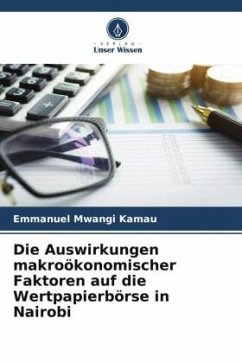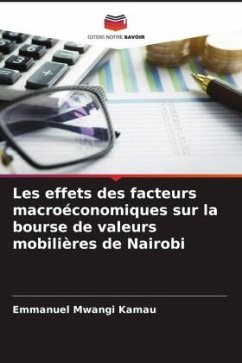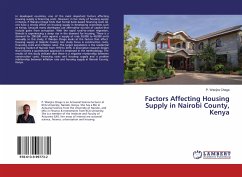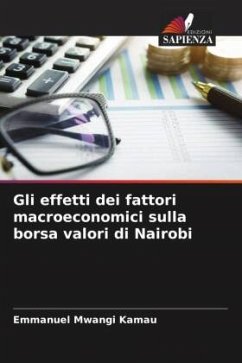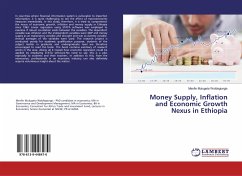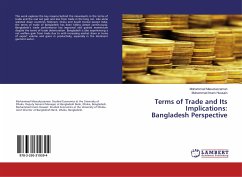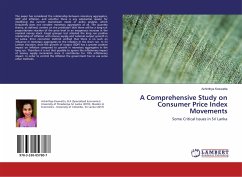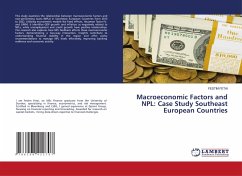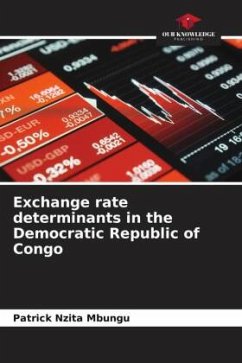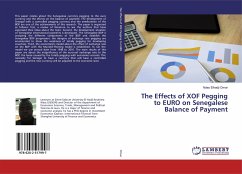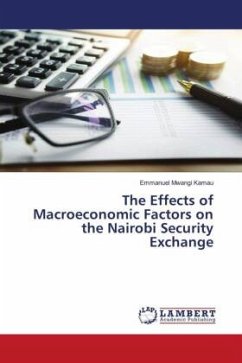
The Effects of Macroeconomic Factors on the Nairobi Security Exchange
Versandkostenfrei!
Versandfertig in 6-10 Tagen
29,99 €
inkl. MwSt.

PAYBACK Punkte
15 °P sammeln!
This book examines the effects of macroeconomic factors on the Nairobi Security Exchange Returns. This study examined the effects of money supply, inflation and 91-Day Treasury Bill on stock returns. Monthly time series data from January 2006 to June 2014 was sourced from Central Bank of Kenya (CBK), Kenya National Bureau of Statistics (KNBS) and the Nairobi Security Exchange (NSE). Unit root test was conducted using ADF and PP test where stationarity was established. Three (3) cointegration equations were established by Johansen cointegration test. The Vector Error Correction Model (VECM) was...
This book examines the effects of macroeconomic factors on the Nairobi Security Exchange Returns. This study examined the effects of money supply, inflation and 91-Day Treasury Bill on stock returns. Monthly time series data from January 2006 to June 2014 was sourced from Central Bank of Kenya (CBK), Kenya National Bureau of Statistics (KNBS) and the Nairobi Security Exchange (NSE). Unit root test was conducted using ADF and PP test where stationarity was established. Three (3) cointegration equations were established by Johansen cointegration test. The Vector Error Correction Model (VECM) was used. Based on empirical evidence, money supply, balance of payment, exchange rate and political uncertainty had no effect on stock returns in the Nairobi Security Exchange. Based on empirical evidence from the study, it was concluded that macroeconomic variables affect Nairobi Security Exchange returns. The variability of macroeconomic variables leads to volatility of stock returns. The study recommends need to put up policies that will lead to low and stable inflation and interest rates.



